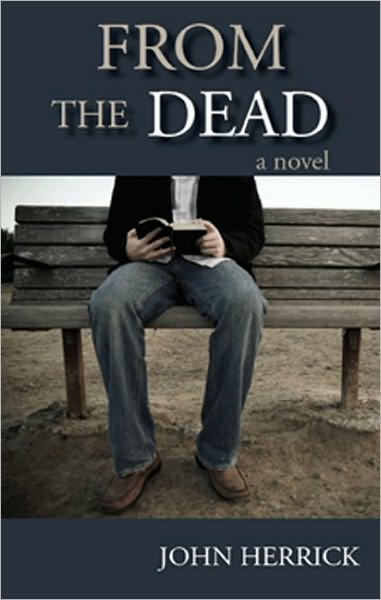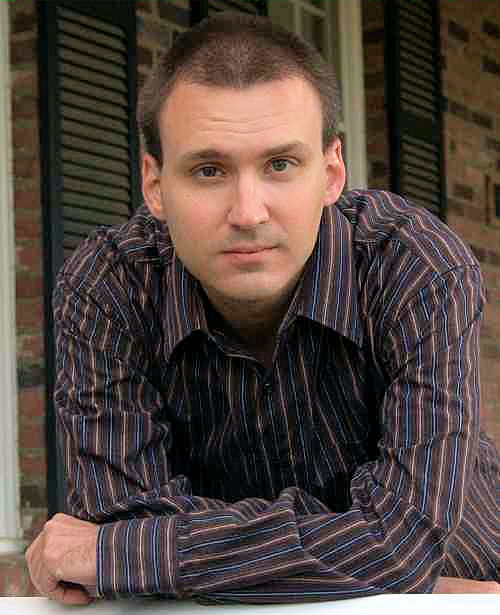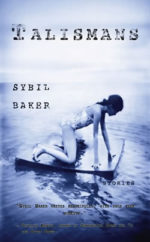 Synopsis:
Synopsis:
Things are not working out the way Jesse Barlow planned. He grew up “the son of a preacher man” — that Dusty Springfield recording was the author’s inspiration for the story — in a small Ohio town, but has been toiling in Los Angeles for eleven years since graduating from high school and coming west to pursue an acting career. After some modest early success, his career is now as dead as Jesse is feeling inside. Meanwhile, Jada, his live-in girlfriend, is on a different professional trajectory. She is flourishing as a film director’s assistant and they are living increasingly separate, isolated lives. Jesse knows that he is not in love with Jada and they do not have a future as a couple.
Jesse is depressed and growing increasingly desperate to land a stint in front of the cameras, as opposed to his job at a photography store. And in Jesse’s case, the cliche is true: Desperate times lead to desperate measures that leave him so sickened and repulsed by his own behavior that he attempts suicide. Luckily, Jada finds him in time, he is rushed to the hospital, and after recovering, he decides to return home to Ohio.
Staying with his sister, Eden, he is reunited with the father, Chuck, from whom he has been estranged for many years. He takes a job performing maintenance and janitorial projects for his father’s congregation.
A reunion with his high school sweetheart, Caitlyn, brings shocking news. Right before Jesse left for Los Angeles, Caitlyn became pregnant and they agreed that she would undergo an abortion. Jesse left Ohio believing that Caitlyn followed through with the procedure. But he learns that not only could she not abort their child, Caitlyn has been raising their son, Drew, on her own. She never told Jesse the truth, correctly believing that if he left for Los Angeles knowing that she was pregnant and expecting her to have an abortion, he would not be happy to learn that she decided not to terminate her pregnancy. Caitlyn did not want to stand in the way of Jesse’s dream of becoming an actor.
Caitlyn permits Jesse to forge a relationship with the boy, but only if he promises not to reveal that he is, in fact, the father that Drew longs for. After all, Jesse abandoned Caitlyn and Drew eleven years earlier, and she does not know how long this latest phase of Jesse’s life will last. She cannot risk having him break Drew’s heart by leaving town again.
For quite some time, Jesse has been ignoring physical symptoms and medical advice suggesting that he may be suffering from a serious health condition. When Jesse learns that Drew is also ill, he sees an opportunity to save his son — and in the process, redeem himself. Will it work?
Review:

Author John Herrick’s first published novel is an auspicious start to his writing career. His contemporary exploration of the Parable of the Prodigal Son (Luke 15:11-32) is, for several reasons, not an easy read. But the message Herrick wants readers to take away from the story is clear and unmistakable: “As long as you have breath in your body, a second chance is available,” according to Herrick.
Herrick’s best writing is on display in the first part of the book wherein he describes Jesse’s increasing despondency over his stalled acting career, frustration about his largely superficial relationship with Jada, and consternation over a particularly troubling moral dilemma. The character of Jesse came into clear focus, his roller coaster of emotions fully understandable and empathetic, and his choices hugely disappointing for the reader who, by then, has invested in Jesse and his future.
The second portion of the book, detailing Jesse’s resumption of his life in Ohio, was still enjoyable, if not as satisfying. For one thing, the book’s pacing was not nearly as smooth. While the Los Angeles storyline moved along rapidly, pushing the reader to keep reading in order to see what Jesse would decide and whether he would survive, the depiction of Jesse’s reunion with his family and friends seemed to sputter and lose momentum from time to time. Some critical scenes seemed rushed and lacking the detail I craved about the characters’ interactions with each other. For instance, not long after their reunion, Jesse visits Caitlyn’s home. Herrick writes that “Jesse greeted Caitlyn.” Of interest to me would have been how he greeted her. Did he embrace her? Did they linger in each other’s arms? Did Caitlyn find herself tempted to kiss him or vice versa? No clues were provided by Herrick about the feelings the characters were experiencing at that pivotal moment in their relationship. Those types of omissions, while not egregious enough to prevent the reader’s overall enjoyment of the experience of reading the story or detract from its message, reveal Herrick’s freshman status.
Once he returns to Ohio, Jesse proves to be quite an exasperating character. Determined to save his son, his method is beyond unorthodox — it is reckless, short-sighted, and, in real life, would never result in a happy ending. So as much as I wanted to cheer for Jesse in his new role as a devoted father, I was really disappointed to see Jesse again making ill-conceived choices and formulating a disastrous plan. I had the urge to slap him the way Cher slaps Nicolas Cage in “Moonstruck,” and tell him to “snap out of it!” I appreciate that Herrick took dramatic license with his characters in order to make the point that Jesse would do anything necessary — even to the point of dying himself — to save his child. The method employed by Jesse simply did not ring true for me. If Herrick’s goal was to make his readers see Jesse as a hero, he fell far short of his goal with me. By the end of the book, I saw Jesse as very, very lucky and extremely blessed to have survived his own absurd scheme to rescue Drew.
Herrick’s supporting characters lend realism to the tale. Again, those situated in Los Angeles where the initial part of the story takes place, ring the truest, among them Jada in all of her narcissistic, self-centered duplicity. Chuck welcomed Jesse back with open arms, no questions asked, reacting exactly as hopes a pastor would and consistent with the Biblical parable. Chuck’s lack of malice or resentment toward the son who has stayed away from home for more than a decade raised questions in my mind about the conflict he and Jesse apparently experienced when Jesse was growing up. Pastors’ kids have a lot of expectations placed upon them, as they are called upon to be role models for their peers and reflections of their parent’s piety. It is not entirely clear, based upon Herrick’s descriptions of their tumultuous relationship, exactly what the problems between Chuck and Jesse were, but as soon as Jesse returns home and is reunited with his father and sister, it is evident that both Chuck and Eden are unconditionally supportive people with strong faiths who would never turn their backs on Jesse. Thus, the reader is left to conclude that it must have been Jesse’s own insecurities, self-doubts, and resentment that caused him to flee Ohio and the family members who loved him then — and love him still.
Overall, Herrick’s debut work is impressive, the story thought-provoking, uplifting, even inspiring, and sure to evoke an emotional response from each and every reader. By the time the story concludes, Jesse seems well on the way to being able to receive love, acceptance, and unwavering support from those who matter most to him, his son and father. He also seems engaged in a healthy relationship — in whatever form it might eventually take — with the mother of his child. Many unanswered questions remain, but part of the fun is writing one’s own epitaph to an enjoyable story.



1 Comment
[New Post] Book Review: From the Dead https://www.jhsiess.com/2010/12/19/from-t…